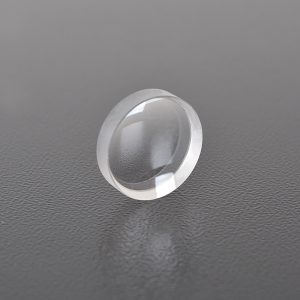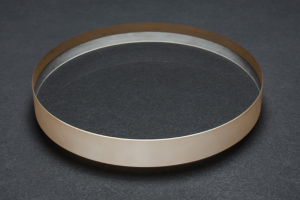
Camera Lens Factory: the Core of Precision Optical Technology
In modern photography and imaging technology, camera lenses play a vital role. Whether it is a smartphone, a professional SLR camera, or an industrial inspection equipment, the quality of the lens directly determines the clarity, color reproduction and overall performance of the image. As the manufacturer of this core component, the camera lens factory bears the heavy responsibility of transforming optical theory into actual products. This article will explore in depth the production process, technical challenges and importance of the camera lens factory in modern technology.
1. The core tasks of the camera lens factory
The main task of the camera lens factory is to design, manufacture and test lenses for various imaging devices. The lens is the core of the optical system, responsible for focusing light on the sensor or film to form a clear image. The quality of the lens directly affects the imaging effect of the camera, so the lens factory needs to have a very high technical level and precision manufacturing capabilities.
The work of the lens factory is not only to produce lenses, but also includes multiple links such as optical design, material selection, processing technology, coating technology and quality control. Every link needs to be strictly controlled to ensure the high performance and high reliability of the final product.
2. Lens production process
1. Optical design
The production of lenses starts with optical design. Optical engineers use professional optical design software (such as Zemax, Code V, etc.) to design lenses according to customer needs. Multiple optical parameters such as focal length, aperture, distortion, chromatic aberration, etc. need to be considered during the design process to ensure that the lens can meet specific imaging requirements.
2. Material selection
The material selection of the lens is crucial. Commonly used lens materials include optical glass, plastic, and crystal. Different materials have different refractive index, dispersion characteristics, and mechanical properties. Engineers need to select the appropriate material according to the design requirements.
3. Precision machining
The machining of the lens is one of the most critical links in the production process. The curved shape of the lens requires extremely high precision and is usually processed using CNC machines (CNC). During the machining process, the surface of the lens needs to go through multiple processes such as grinding and polishing to ensure its surface smoothness and shape accuracy.
4. Coating technology
In order to reduce the reflection loss on the lens surface and increase the transmittance, the lens usually needs to be coated. Coating technologies include anti-reflection film, anti-reflection film, etc., which can effectively improve the optical performance of the lens.
5. Quality inspection
The quality inspection of the lens is the last checkpoint to ensure product performance. By using precision instruments such as interferometers and spectrophotometers, lens factories can conduct comprehensive inspections on the surface quality and optical performance of lenses to ensure that each lens meets the design requirements.
3. Technical challenges and innovations
1. High-precision manufacturing
The manufacturing precision of lenses is extremely high, especially for lenses used in high-end cameras and industrial equipment, the error of their surface shape usually needs to be controlled at the nanometer level. This places extremely high demands on processing equipment and processes.
2. Material innovation
With the development of optical technology, new materials are constantly emerging. For example, the application of materials such as aspheric lenses and ultra-low dispersion glass makes the design of lenses more flexible and the performance more superior.
3. Automated production
In order to improve production efficiency and consistency, more and more lens factories have introduced automated production lines. Through robots, automated testing equipment, etc., lens factories can achieve large-scale, high-precision production.
4. Environmental protection and sustainability
With the increase in environmental awareness, lens factories are also actively exploring more environmentally friendly production processes. For example, using environmentally friendly materials, reducing waste emissions, and improving energy efficiency are all important topics for lens factories in sustainable development.
4. The importance of camera lens factories in modern technology
Camera lens factories are not only the core of the photography industry, but also play an important role in many other fields. For example, in medical equipment, endoscopes, microscopes and other equipment rely on high-quality lenses; in industrial inspection, machine vision systems also require high-precision lenses to ensure the accuracy of inspection; in the aerospace field, imaging equipment on satellites and drones is also inseparable from the support of lenses.
With the development of emerging technologies such as artificial intelligence, autonomous driving, and virtual reality, the demand for lenses will increase further. Camera lens factories will continue to play a key role in technological innovation and precision manufacturing to promote the development of these fields.
5. Future Outlook
In the future, camera lens factories will face more opportunities and challenges. With the popularization of technologies such as 5G, the Internet of Things, and artificial intelligence, the demand for imaging equipment will show explosive growth. Lens factories need to continuously improve their technical level and develop more efficient, lightweight, and high-performance lens products to meet the diverse needs of the market.
At the same time, with the global attention to environmental protection and sustainable development, lens factories also need to make more efforts in green manufacturing, energy conservation and emission reduction to ensure that while promoting technological progress, the impact on the environment is reduced.
Conclusion
As the core of precision optical technology, camera lens factories play an indispensable role in modern science and technology. Through continuous technological innovation and process improvement, lens factories provide high-quality optical solutions for photography, medical, industrial, aerospace and other fields. In the future, with the further development of science and technology, camera lens factories will continue to lead the advancement of optical technology and bring a clearer and better visual experience to mankind.
Hanzhong Brisun Optics Co., Ltd. Is the high precision optical element manufacturer provides customized production of Various optical lenses, including spherical lens, cylindrical lens, optical window, mirror, prism, filter, metal base mirror and other high-precision optical elements. The base materials include various optical glass, fused quartz, calcium fluoride (CaF2), zinc selenide (ZnSe), germanium (GE), silicon (SI), sapphire, metal and other materials. And provide antireflective film, high reflection film, spectroscopic film, metal film and other optical coatings.
Welcome to OEM and Purchasing!


